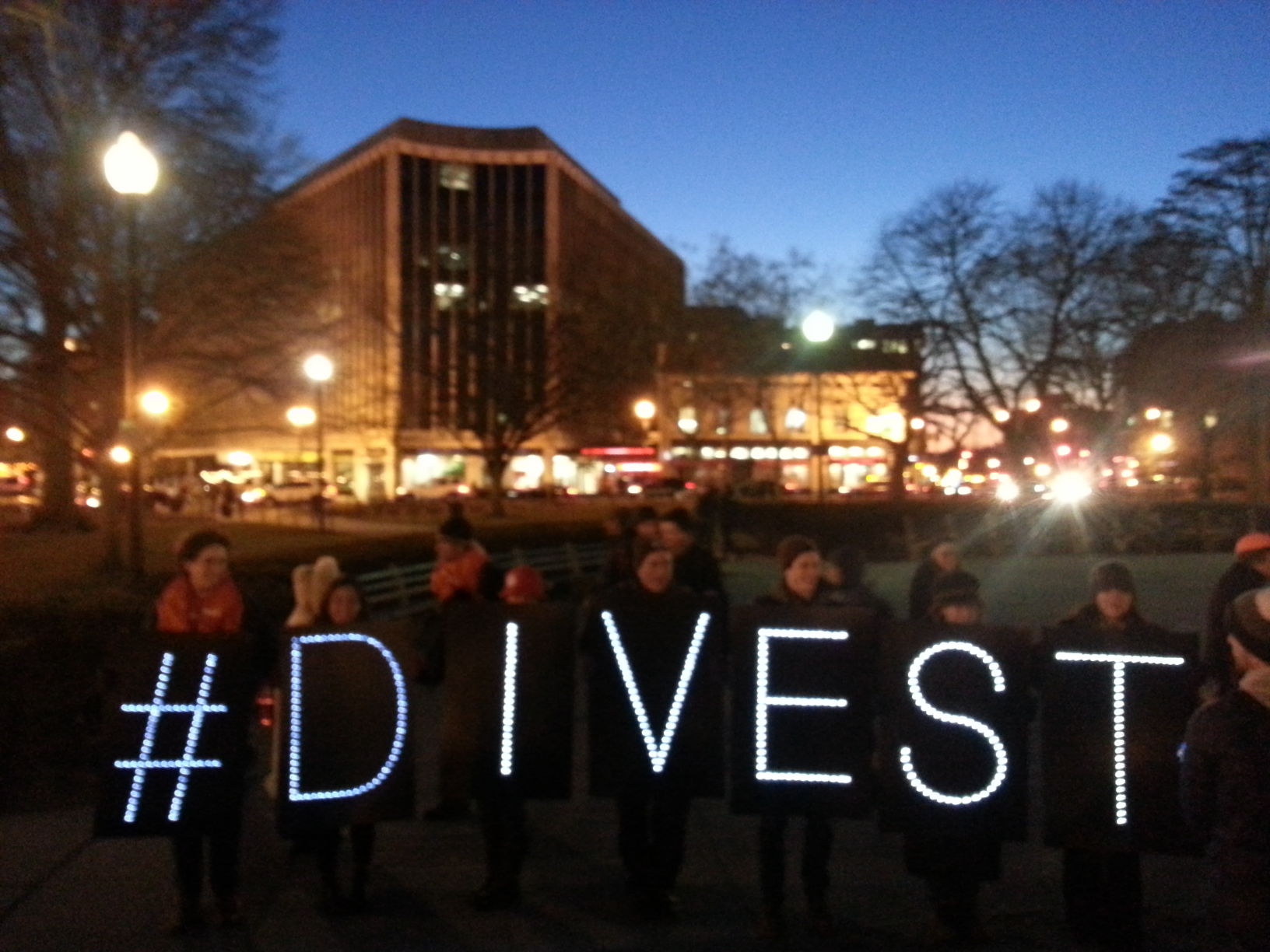
Two university students battled biting winds, freezing temperatures and Friday rush hour for the sake of the environment, taking part in Global Divestment Day — a worldwide event pushing for an end to government and university investments in fossil fuel companies.
“Divestment is a tactic used by activists to change the status quo. A lot of the systems that cause problems to people in the world are based on where we are keeping our money,” said Emily Reimal, a student from this university who attended the rally in Dupont Circle.
Reimal said she has always been an activist, but she became interested in divestment at a Power Shift climate change conference last year. Divestment from fossil-fuel industries — the opposite of investment — is a way to change the focus of energy sources, the sophomore criminology and criminal justice major said.
“We’re charging universities, churches, cities, governments, anything that has an endowment or a large fund to take their money out of fossil fuel industries and reinvest it into renewables,” Reimal said. “We want to hold the fossil-fuel industry responsible for their role in climate change.”
At the rally Friday evening, Reimal and two other local students, including Eric Marshall-Main, a senior communication studies major at University of Maryland University College, listened to speakers and then spread out to educate and raise awareness about the issue.
They also collected signatures from people in favor of divestment for Washington, Reimal said. Because of the low temperatures, she said, about 100 people showed up, but there was still a lot of energy at the rally.
Though the rally was focused on Washington, Marshall-Main said he is hoping to bring the issue back to College Park and this university, where he also serves as a work controller for Facilities Management.
“They should be doing more divestment; I don’t think it is on their radar right now,” he said. “For all the good that it does, some parts of the university are slow to make change, and comfortable in the status quo.”
Reimal said that the Student Government Association’s Student Sustainability Committee used to have a divestment subcommittee, but it lost attention among the other initiatives the committee is working on this year.
Because investment is very complicated, Reimal said she feels the University System of Maryland isn’t making any real divestment plans. At a meeting last year, representatives from the university system said there isn’t much they can change because of contracts, she said.
About 11 percent of the university system’s 110 investment fund managers invest in the fossil fuel industry, SGA Director of Sustainability Ori Gutin wrote in an email. But the president of the University System of Maryland Foundation could not share more specifics last time Gutin spoke with him.
That doesn’t mean Reimal isn’t hoping to make divestment a focus for this university. Right now, she is working on a research paper about divestment as part of the College Park Scholars International Studies program, and she is mobilizing people and gauging interest to possibly start a divestment-focused student group on the campus in the fall.
Marshall-Main said this issue should concern all students because by paying tuition, students are investing in companies they might not support, he said.
“Where people invest their money does have real-world outcomes,” Marshall-Main said. “We don’t think of ourselves as investors as students, but the endowment is a gigantic sum of money, and it changes what your reality is for companies.”
Sophomore Maya Spaur, who said she was hoping to attend the rally but didn’t make it, said she supports divestment but universities have other options.
“Divestment isn’t the only solution,” the environmental science and technology and government and politics major said. “If the University System of Maryland financial situation is too complicated, then meanwhile, having a campus carbon tax or some other method of accountability would be another good way to go about it.”
Yale University is considering a carbon tax for its campus, which would assess a tax for the university’s greenhouse gas emissions.
Divestment can bring social change, Marshall-Main said, citing divestment from South African companies during Apartheid and from corporations doing business in Sudan in 2006 during the Darfur genocide.
“Divestment is important because climate change is important,” Reimal said. “It’s important to me that we target this university because we’re here trying to make better futures for ourselves, and if the institution that’s supposed to be supporting us is invested in what’s harming our future, [it’s] really damaging.”



